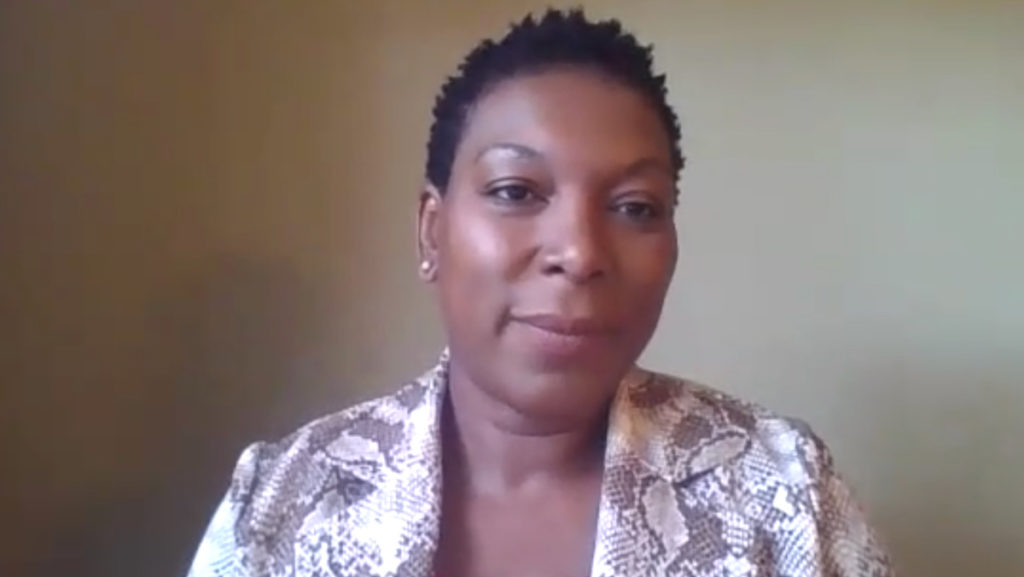The Ithaca College School of Health Sciences and Human Performance (HSHP) is holding a series called “Conversations on COVID” in which health professionals discuss the impact of the COVID-19 pandemic on public health and medical care systems.
Stewart Auyash, associate professor in the Department of Health Promotion and Physical Education, started the series in an attempt to form connections between the college and the surrounding community. Held via Zoom every few weeks, Auyash brings different specialists to discuss the toll the pandemic has had on their respective industries and the health care system’s ability to respond to the crisis. The discussions feature an interview with the guest and a question-and-answer session.
“I wanted to bridge barriers between students, health practitioners, professors and clinicians to where we all have things in common,” Auyash stated. “We have all been affected by COVID.”
Since the first meeting Sept. 30, Conversations on COVID has had three guest speakers: Linda Petrosino, dean of HSHP; Susan Salahshor, assistant professor and director of the physician assistant (PA) program; and Raj Subramaniam, professor in the Department of Health Promotion and Physical Education.
Salahshor discussed how the role of practicing PAs has changed during the pandemic. Salashor has 25 years of experience as a PA and three years in the U.S. Army Reserve. She also holds a doctorate in health care management and has served as the president of the Florida Academy of PAs in which she was the first African American to serve as president. Salahshor has experience in 10 different specialties, including geriatrics, surgery and rural medicine.
She discussed topics including the surge in telemedicine and the use of online health services.
“I can tell you I’ve since had a telemedicine visit with my provider because of COVID-19 because her practice is not wanting us in the office unless we had to be there,” Salahshor said. “I don’t plan to go back unless she tells me I have to come back into the office. I sat at my office.”
Salahshor also noted how the increased use of online services has made health care more accessible. She said that having an app with her medical information allows her to receive her COVID-19 test results on her phone.
Salahshor also went on to discuss racism during the pandemic. In addition to fighting COVID-19, the United States has been dealing with an increase of highly publicized crimes against Black individuals, including Ahmaud Arbery, Breonna Taylor and George Floyd. Auyash asked Salahshor how racism and the pandemic affect the health care system.
“Racism is bad,” Salahshor said. “Racism is a public health crisis. As we see right now, we’ve got to make the change, and I think health care providers are in the best position to make that change because we can advocate for our patients, no matter where they are. As a health care provider, our second role is to advocate.”
Senior Evan Ormsby attended the conversation with Salashor and said he thinks these discussions provide valuable analysis of the pandemic.
“I do believe … that the conversations on COVID have been very important,” Ormsby said via email. “I remember that what these conversations bring are several perspectives that both align and differ but all have the same approach.”
The college has hosted a number of other programs in response to the pandemic. In April, the Honors Program began facilitating discussions about the pandemic with its weekly Rapid Response Salons. Additionally, professors have been adjusting their curricula to address current events in the classroom.
There will be another session of Conversations on COVID on Dec. 2, and Auyash said he plans to continue the series in Spring 2021.
Petrosino said that she believes holding these conversations will provide analysis for health care providers, public health experts and scientists to help to better understand the times.
“We are a community of learners and scholars and as such this historic moment is one that allows us to study it together,” Petrosino stated via email. “It is our responsibility to talk about the moment we are in, to study it and to dissect it. The COVID series provides one venue for faculty and staff to share their expertise and perspectives about this public health challenge. The series can provide timely analysis that will help us understand the moment for health care providers, public health experts, scientists and researchers.”








